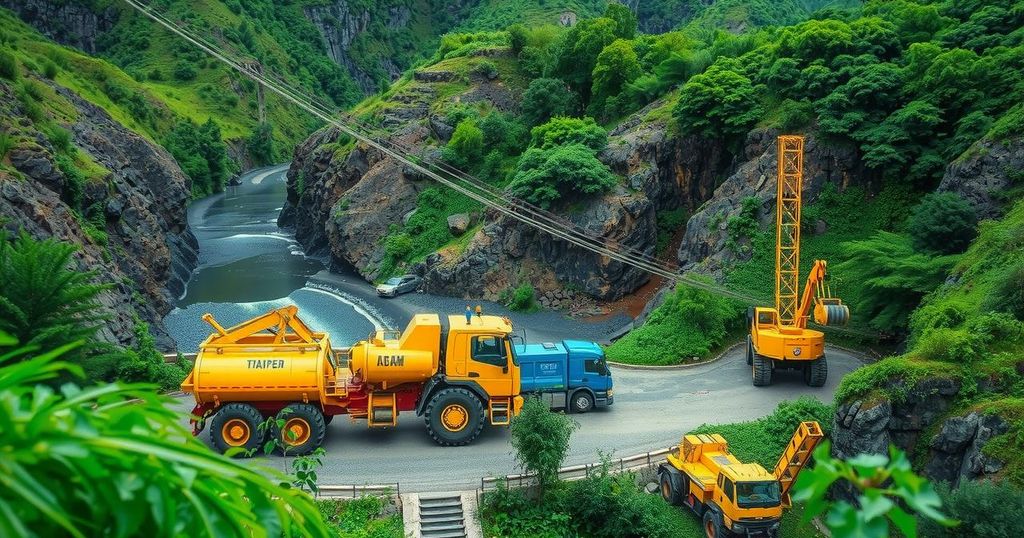Children in Kabwe, Zambia, are facing health hazards from lead poisoning due to toxic mining activities. Mining companies are spreading lead waste, and almost all local children exhibit unsafe lead levels in their blood. Although the Zambian government has the power to halt unsafe mining operations, little action has been taken to protect residents, particularly children.
In Kabwe, Zambia, children face severe health risks due to lead waste from mining activities. The city is recognized as one of the most polluted globally, exacerbated by ongoing mining operations. Companies are excavating and processing hazardous lead waste, which disperses toxic dust throughout the surrounding communities. This situation persists due to the issuance of mining licenses by the government despite existing laws prohibiting unsafe mining practices.
Lead exposure poses significant health threats, particularly to children, causing brain damage, memory loss, and fatalities. Pregnant women exposed to lead may experience miscarriages and other health complications. Health experts indicate that nearly all children living in proximity to the old mine site in Kabwe have dangerously elevated lead levels in their blood, with many requiring immediate medical treatment that is often limited.
Mining activities in Kabwe began during British colonial times, with the mine ceasing operations in 1994. However, the legacy of this mining includes millions of tons of lead waste that have exposed approximately 200,000 people to toxic conditions. Families residing near hazardous waste piles often have children playing in these contaminated areas, oblivious to the risks involved. Small-scale miners frequently bring their children to work due to a lack of alternative income sources.
Recent years have seen businesses from South Africa, China, and Zambia operate in the areas contaminated with lead. These companies have deposited considerable amounts of toxic waste near residential and occupational sites. Satellite imagery indicates that by early 2024, at least nine new waste piles had been established around Kabwe, aggravating the local environmental hazard.
Although the Zambian government possesses the authority to address unsafe mining practices, Human Rights Watch reports that it has yet to take decisive action. Current legislation allows the government to suspend mining operations or penalize companies violating environmental laws, yet mining activities persist, raising alarm.
In 2020, legal action was initiated against the British firm Anglo American, which had previously operated the mine, seeking compensation for the affected individuals and a comprehensive cleanup plan. Although the court dismissed the case, the pursuit of justice remains ongoing. While the government has vowed to undertake cleanup efforts in Kabwe, tangible progress has been minimal. A World Bank project aimed at pollution reduction exists, but the contamination sources remain unaddressed. President Hakainde Hichilema has proclaimed the formation of a government committee to tackle these issues twice, yet no committee has been established, according to Human Rights Watch.
In summary, the toxic lead mining operations in Kabwe, Zambia, pose critical health risks to children and the wider community, necessitating immediate action. Despite the existence of legal frameworks to protect the environment and public health, enforcement remains lacking. The unresolved legacy of lead contamination from past and present mining activities underscores the urgent need for effective remediation and accountability, as well as commitment from the government to safeguard its citizens, particularly vulnerable populations such as children and pregnant women.
Original Source: globalsouthworld.com




